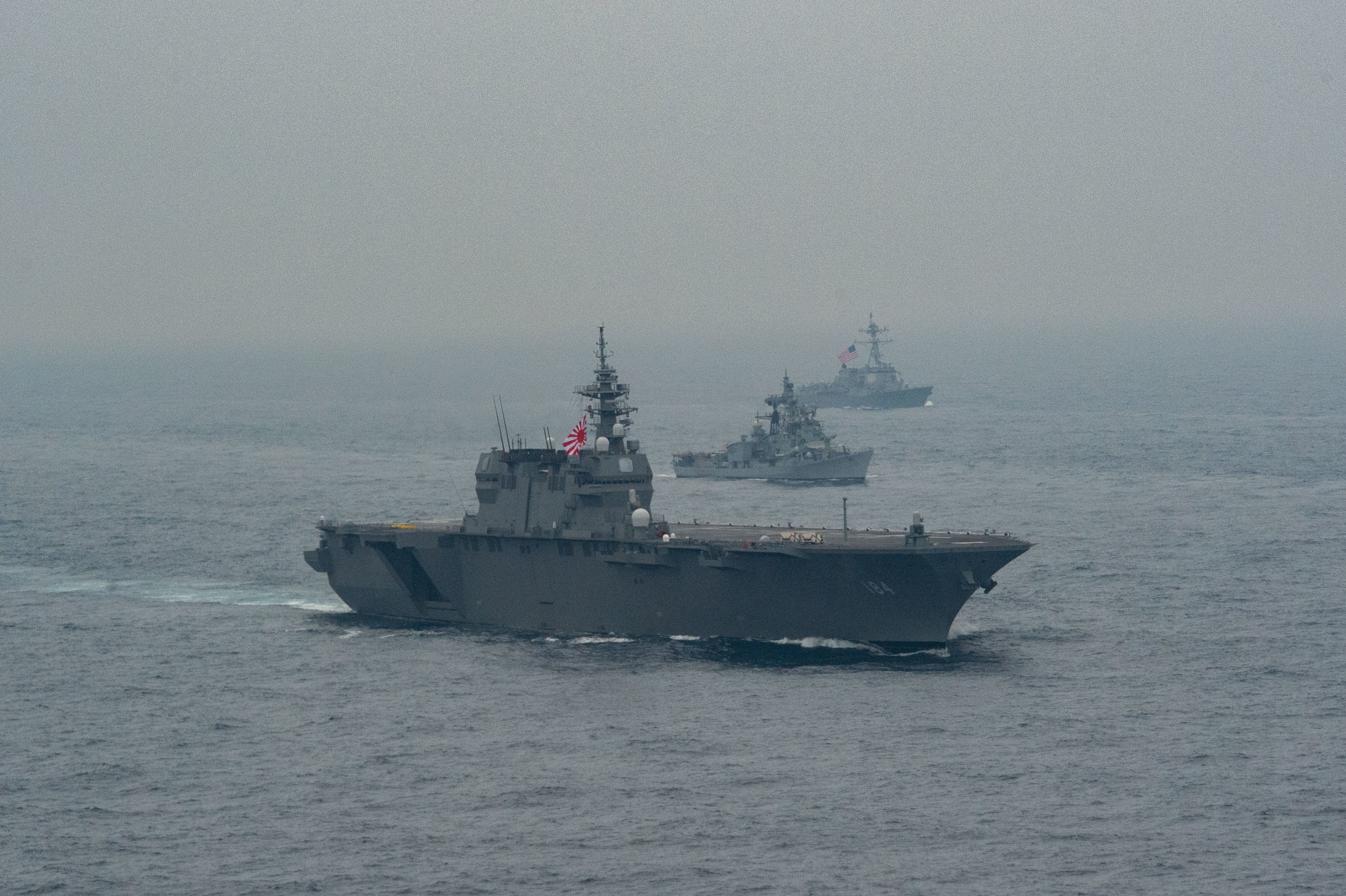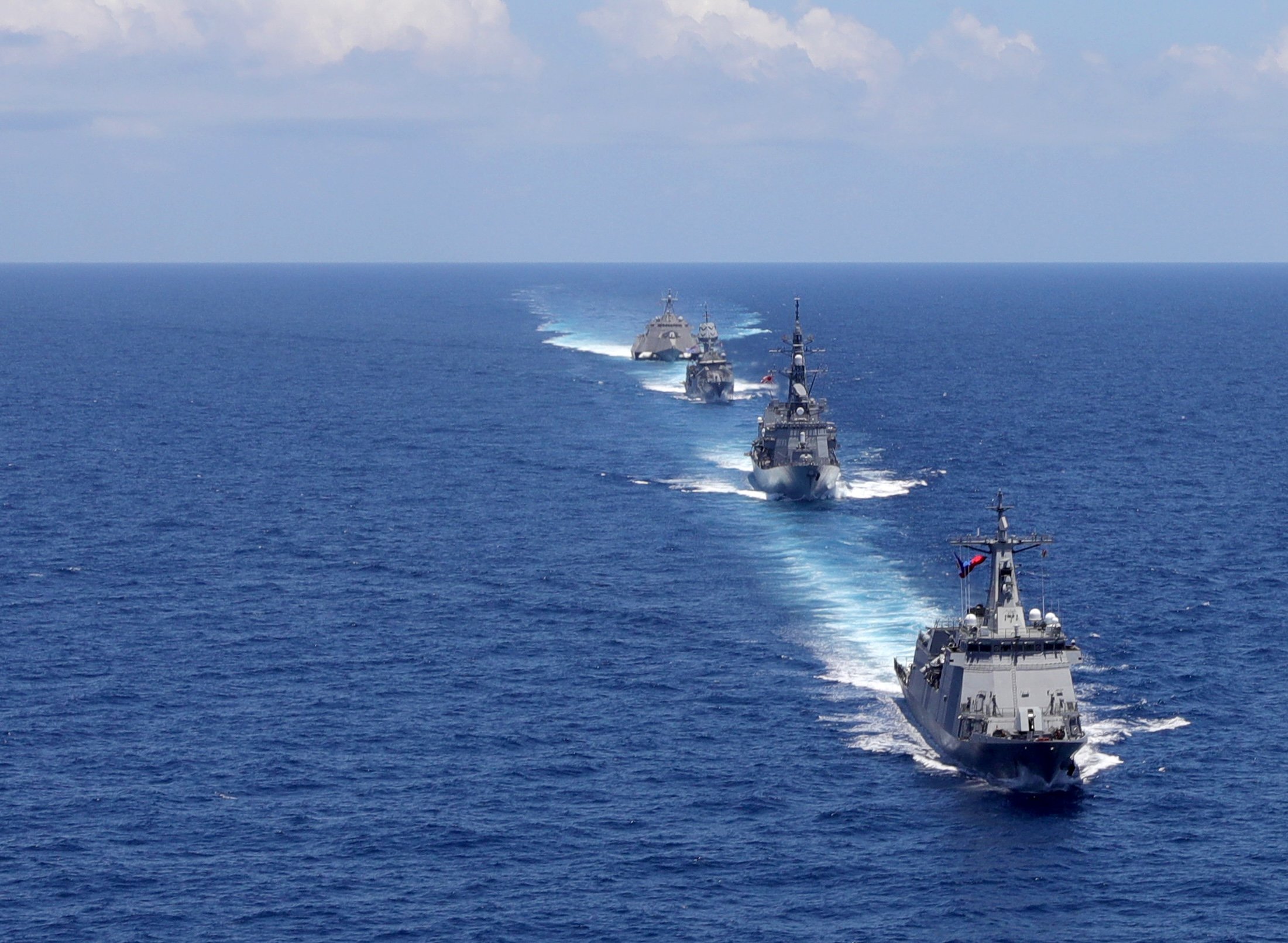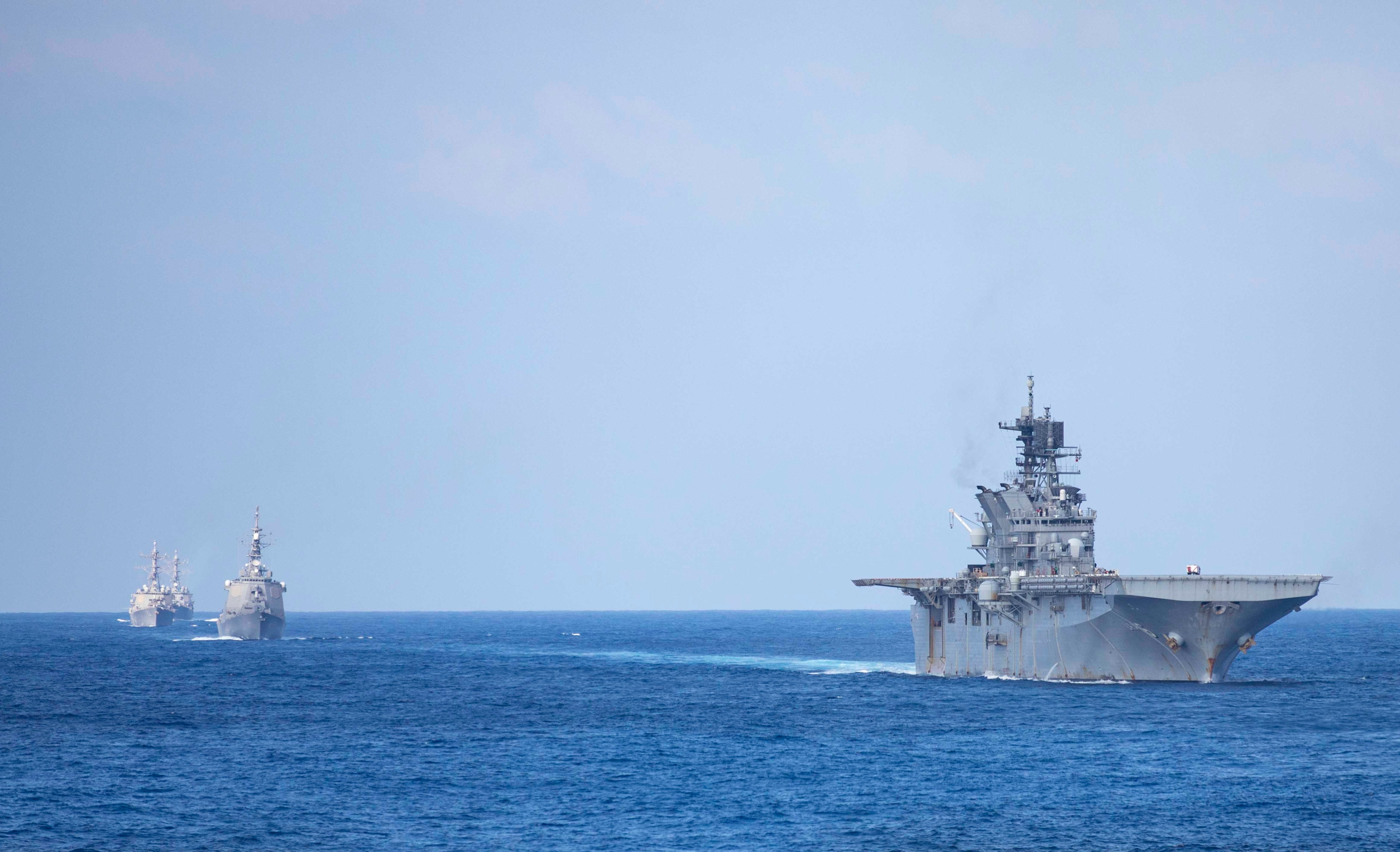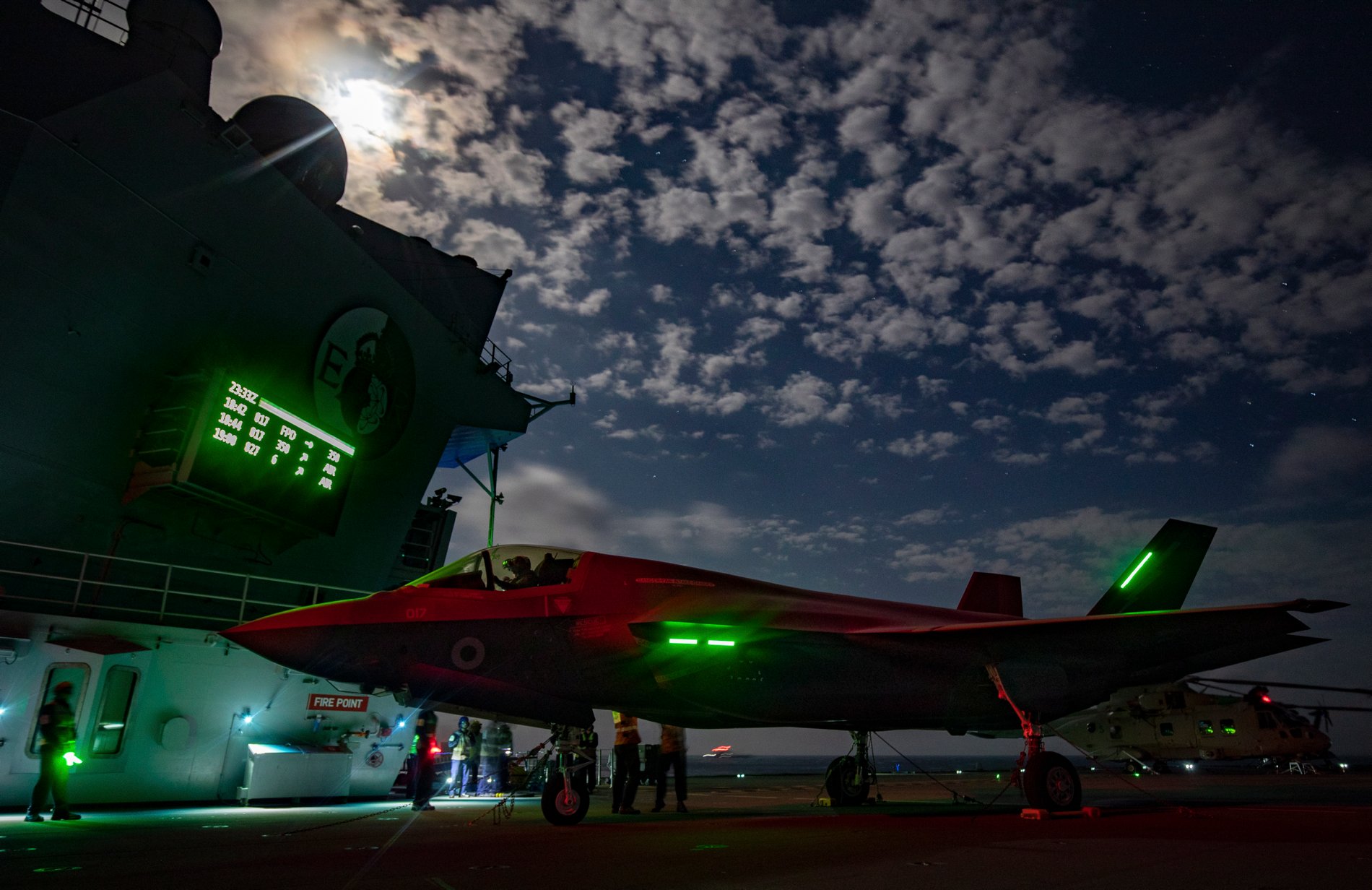
The United Kingdom hopes to shoulder a greater share of the burden of keeping peace in an increasingly complex security environment, the secretary of state for defence said today during the virtual Atlantic Future Forum.
Ben Wallace said the U.K. is committed to European security despite leaving the European Union, and that it was committed to taking on greater role to ensure global security as well.
“We know China is growing the largest maritime surface and subsurface fleets in the world. And our competitors continue to challenge us in the gray zone between war and peace, and especially in the cyber and space domains. Meanwhile, climate change is creating a new set of problems, opening up maritime routes at the top of the world, halfing the transit times between Europe and Asia and increasing our vulnerabilities. Responding to these interlocking international threats requires an integrated response – militarily, economically, and ideologically. But it also requires global partnership,” he said while speaking at the conference, held aboard HMS Queen Elizabeth (R08) and broadcast live online.
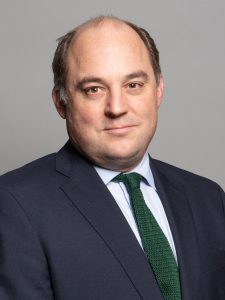
“As a great guarantor of our Western democratic values of liberty, justice and tolerance, the United States has long shouldered the burden of our collective security. But, in an ever more complex world, the more the United Kingdom can do to help shoulder that responsibility, leading on European security and helping the U.S. face challenges on several fronts, the better it will be for all of us. My message to you here today, on this 65,000-ton ship, the most powerful surface vessel ever built in Britain, is that the U.K. is ready and able to share the burden, in NATO and right across the world.”
Wallace added that this British commitment has been shown in part by spending more than 2 percent of its gross domestic product on defense, but also through helping NATO modernize its concept of security and defense.
For example, he said, NATO remains the best hope for countering Russia, as was previously the case during the Cold War against the Soviet Union, “but in a changing world, NATO must continue to adapt. We’ve had good recent success in getting the alliance to adapt to hybrid and cyber threats, but we must now press on, recognizing the potency of our adversaries and the game-changing way they’re employing new technologies to attempt to gain competitive advantage. At the same time, while the United States will always be the indispensable actor in our alliance, we must keep up the pressure on our allies to continue to increase the level and the relevance of their defense investments, taking charge of some of their own security.”
“Nor are we limiting our vision to Europe. Our adversaries are acting on a global scale. Not just, for example, threatening freedom of navigation in the Atlantic or South China Sea, but also challenging our international system and the values that underpin them. It’s no coincidence that over the past few years we’ve seen global declines in political rights and civil liberties,” he continued.
“The U.K. is going to be more present, more forward, more deployed and more active. We’re going to adapt to a campaigning approach to the way we do our business around the world, building resilience with our friends and allies and making better use of our global footprint to ensure that in every domain – whether through defense engagement, training, assisting, and, when required, fighting – we’re using all our resources to push back against our adversaries.”
As an example, Wallace announced a memorandum of understanding with Australia meant to reinforce the U.K.’s commitment to delivering anti-submarine warfare frigates, which would create jobs for both countries and therefore an economic partnership and resiliency, but would also contribute to global defense and freedom of navigation in the Indo-Pacific area.
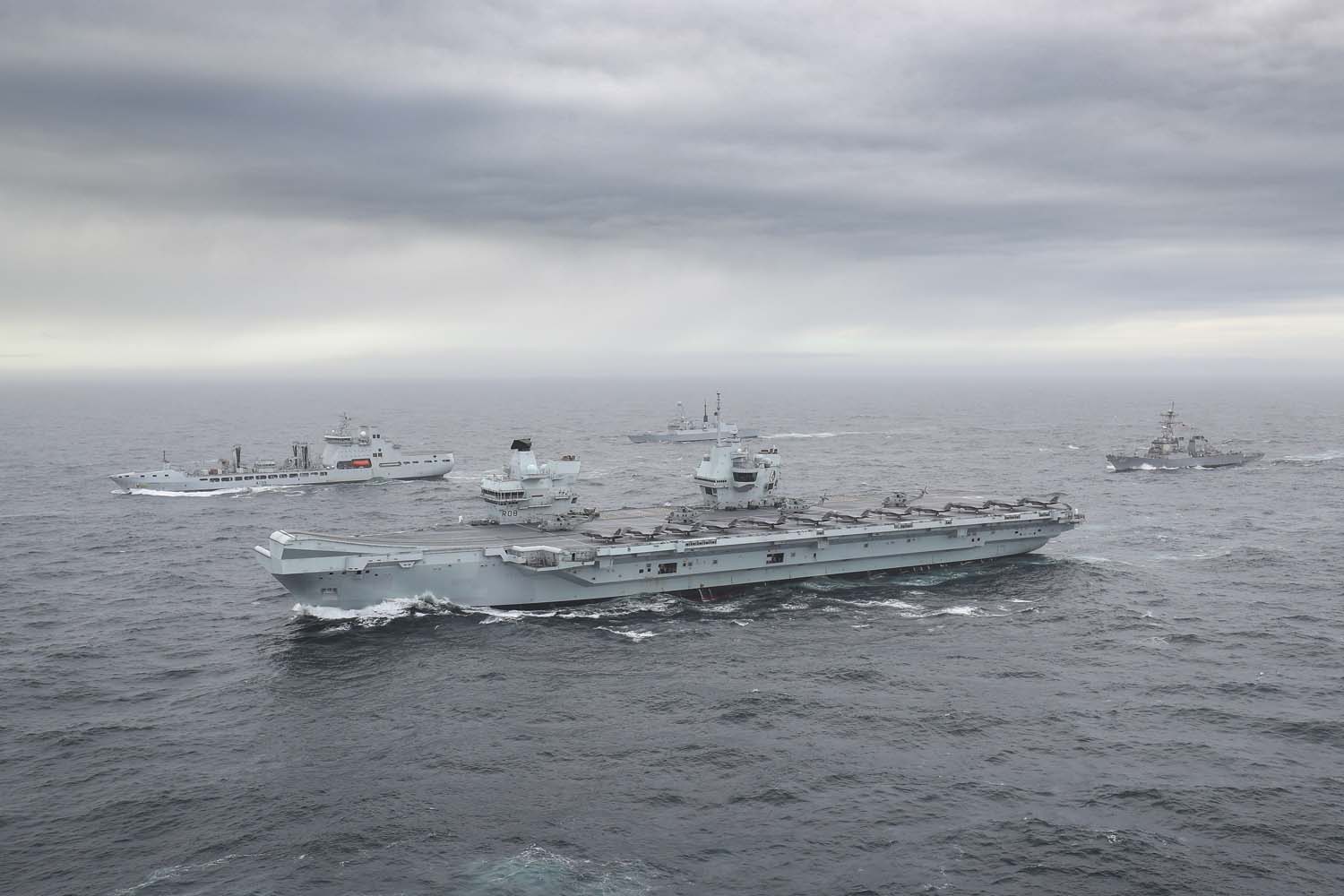
Throughout the two-day virtual event, a common theme was the need to consider more than just military might when looking at future conflicts around the globe. First Sea Lord Adm. Tony Radakin said during the event kickoff on Tuesday that the conference as a whole was “about acknowledging that real power is only achieved when the instruments of power – military, economic, social, cultural, political and diplomatic – are aligned and harnessed.”
Deborah Petterson, the deputy director of the National Cyber Security Centre, said Tuesday in a panel that those different sectors are already being blurred in cyber warfare, as recent cyberattacks around the globe show that conflicts with both state and non-state actors are already becoming more complex than fights of the past.
“In terms of cyber warfare, what you’re seeing is norms changing. So, for example, in the Middle East we’re seeing kinetic responses to cyberattacks. It used to be sort of tit for tat; if there’s a cyberattack here, there’s a cyberattack there. But now we’re seeing a kinetic response to a cyberattack, or a cyberattack in response to a kinetic attack. So it’s getting far more blended, and then what you’re seeing is that gets into the wild and things that were never targeted … are being hit by attacks that were never targeted at us because our adversaries don’t work with the same pinpoint precision a Western government might in terms of, their risk appetite is much higher.”
She mentioned Russia’s Main Intelligence Directorate (GRU) targeting non-military institutions in recent cyberattacks. Just this week, the Justice Department announced a federal grand jury in Pittsburgh returned an indictment charging six GRU computer hackers with attacking targets including Ukrainian government agencies and electrical grids, French election infrastructure and politicians, American healthcare and pharmaceutical companies, 2018 Winter Olympics athletes and officials, and more.
Mark Sedwill, the chairman of the Atlantic Future Forum and a former U.K. national security advisor and ambassador to Afghanistan, said in his opening remarks Tuesday that five kinds of change would further complicate global security and define the next few decades.
First, he said, would be environmental change, not just in the form of climate change but also in things like loss of biodiversity. Even if the world can reach net-zero carbon emissions, temperatures will still rise and weather will become more volatile, he said.
Second is demographic change: by the middle of the century, sub-Saharan Africa will be the only region without an aging population, and by the end of the century 40-percent of the world’s working-age population will be located there. Major economies having fewer workers and more retirees will be a strain on its own, but he noted other tougher consequences.
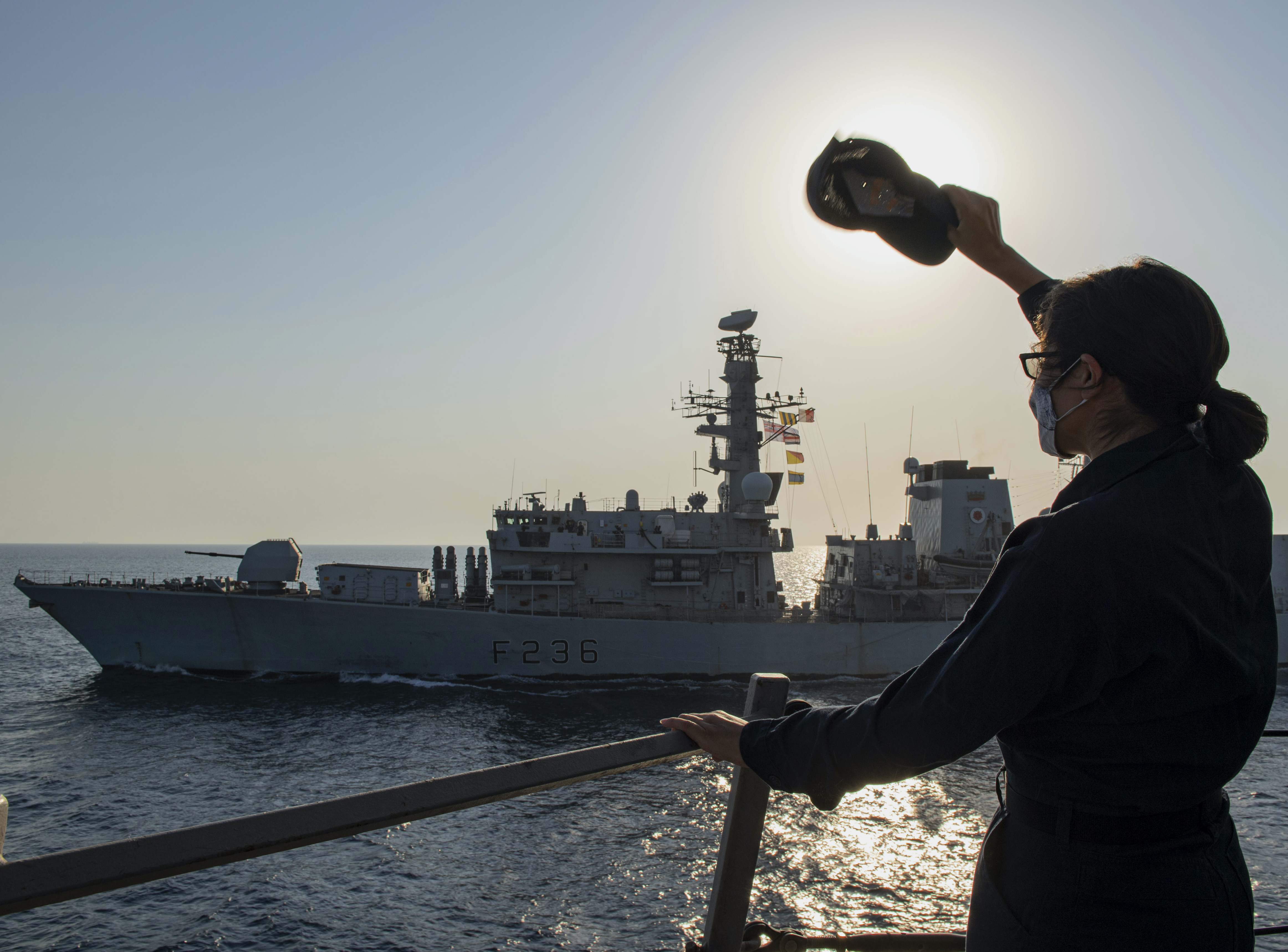
“Just think about the intersection between those two sets of issues: if, as a result of climate change we expect, the Sahara spreads south and there aren’t enough jobs and economic opportunities for those young people in sub-Saharan Africa, inevitably migration flows will result: people will head north, with an impact on the economies, societies, politics of North Africa and of course the European continent. The intersection of some of these big trends are the issues on which I think we should focus our attention over the next few years.”
Third, he said, was that technology like quantum computing, artificial intelligence, autonomy and more would not only change defense and civil society but would also begin to replace white-collar jobs, whereas past technology advances have disproportionately affected blue-collar jobs.
Fourth, a shift in global growth to the Pacific – not just China, but also Vietnam, Indonesia, Taiwan, Japan, South Korea and more – represents a challenge to Europe. With the U.S. increasingly looking west, “that’s a profound shift in our relationships.”
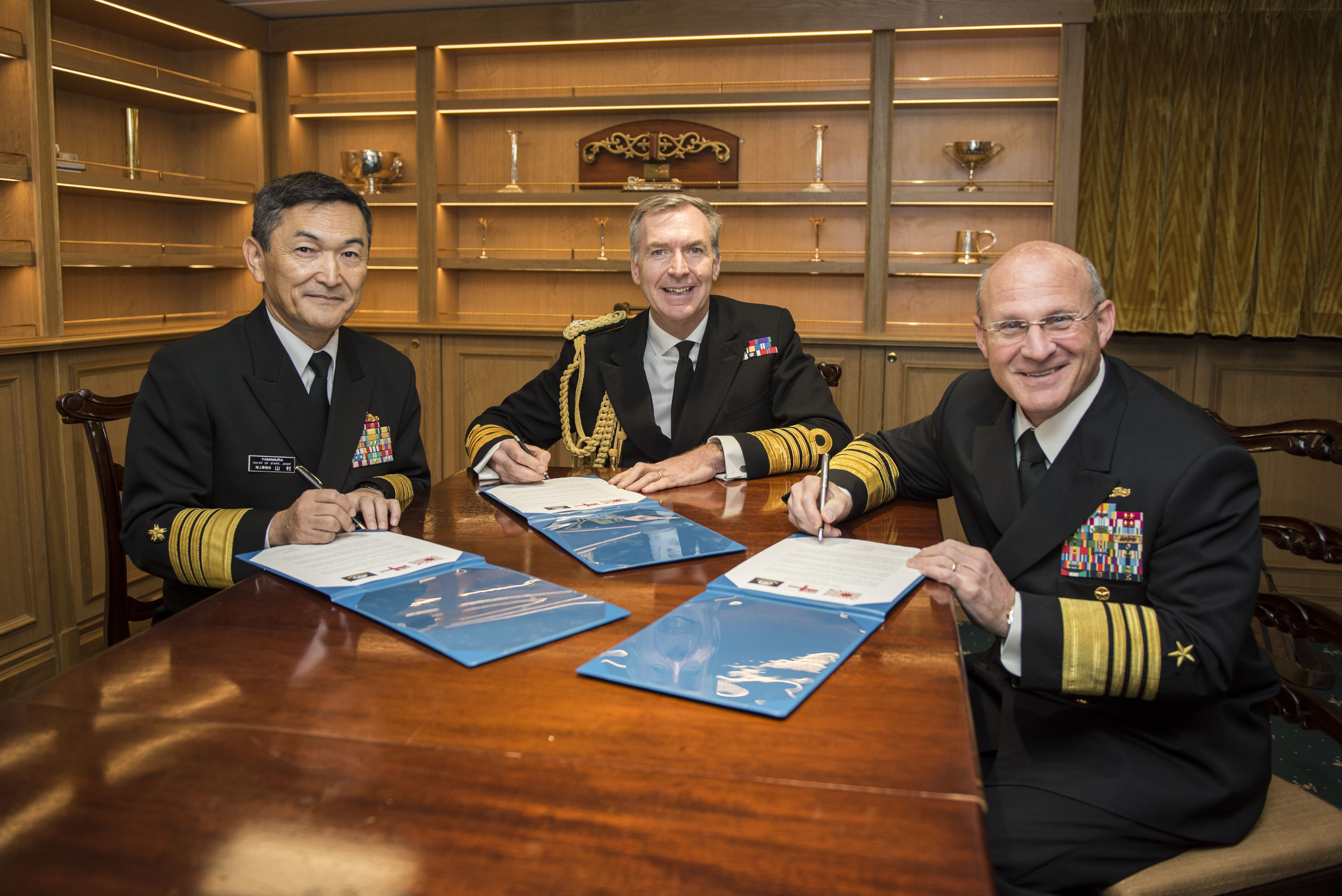
And finally, inter-state competition and rivalry – especially that between the U.S. and China – is heating up around the world and is increasingly being fought in the cyber and information domains.
“What that means is that we need to think of national security in a different way. National security 1.0, if you like, was the defense of the realm. National Security 2.0 was the defense of the realm plus keeping our citizens safe from non-state threats like terrorism and organized crime, and of course those have dominated the public debate about national security in many of our previous defense reviews and so on over the past 15, 20 years or so. National Security 3.0 … is going to encompass all of those things, but it will also encompass economic security .. and environmental security, health security as we’ve learned because of COVID, and of course democratic security,” such as Russian gray zone attacks meant to undermine the relationship between citizen and state and confidence in democratic institutions and election processes.
“All of these things – democratic security, health, environmental, economic security – are as much a part of national and global security in the next quarter of the 21st century as defense of the realm, keeping our citizens safe, has been in the first quarter of the 21st century and before.”



